| |
|
| Reel-to-reel Vision Inspection Machine, RTR-700 |
|
| RTR-700 is deisnged to inspect various kinds of micro components carried on the reel tapes, such as MLCC, MLCI,
chip-R, diodes, LED, QFN, and etc. The reel tapes can be in 2mm, 4mm, or 8mm pitch. Both paper and plastic tapes are supported. RTR-700 can measure
component dimensions and identify kinds of defects, including the empty cavity and the component flipping. The overall processing speed
reaches 6000 pcs/min for 2mm-pitch tapes. The friendly UI lowers the efforts on setup and monitoring, and can be customized upon request.
|
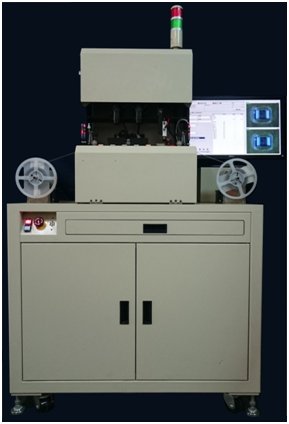
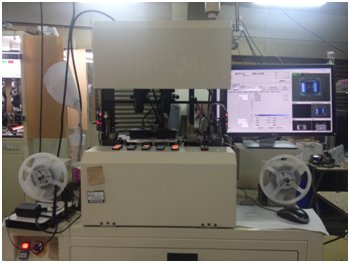
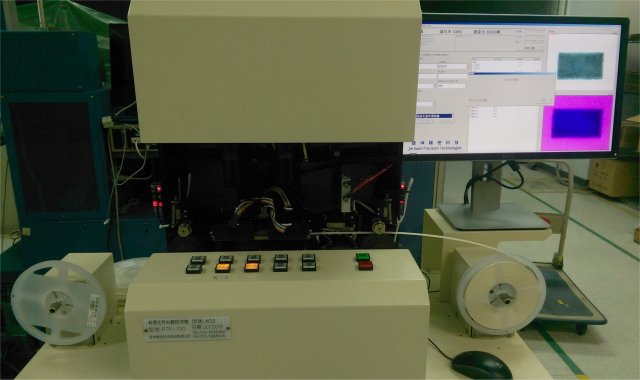
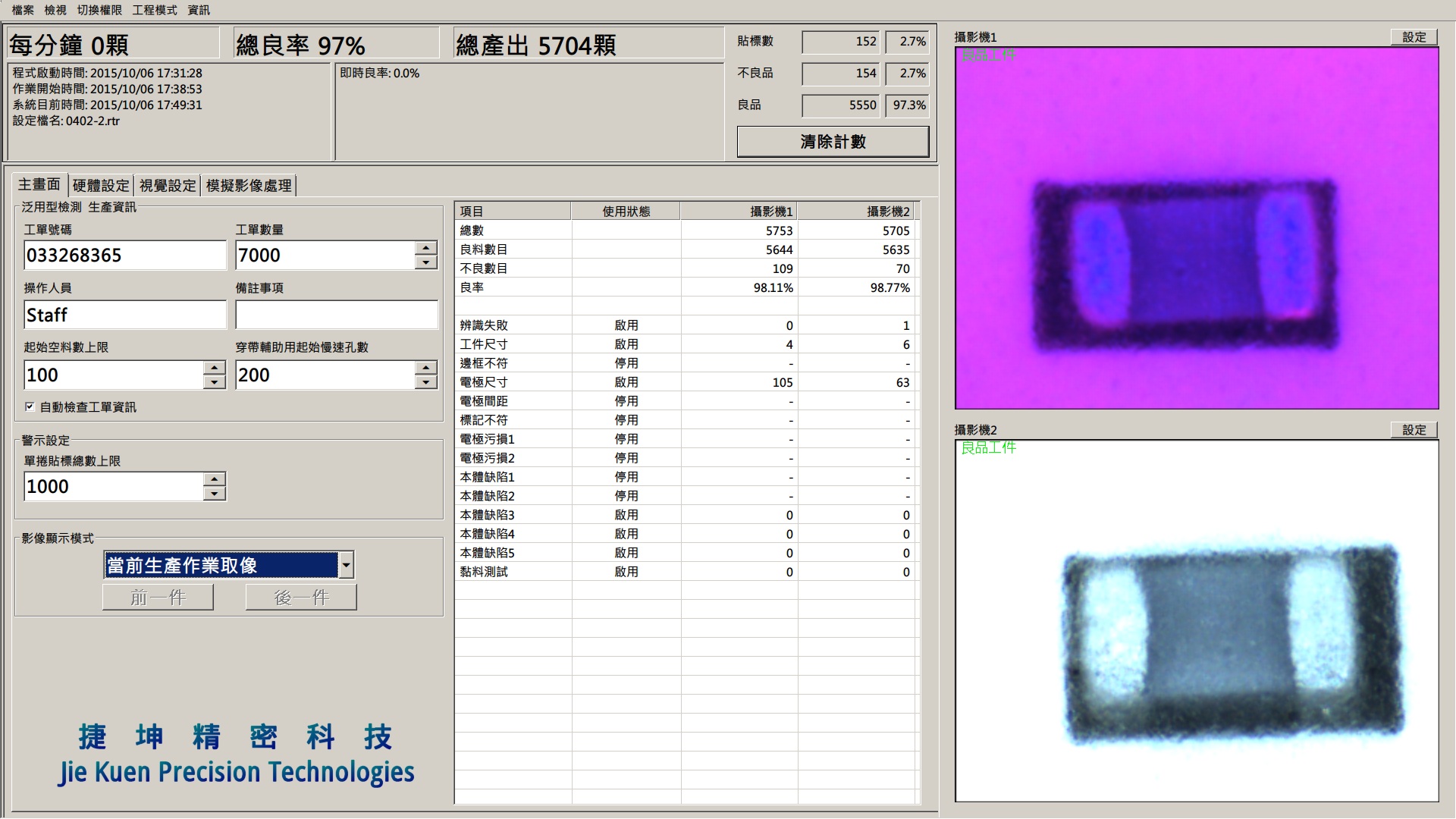
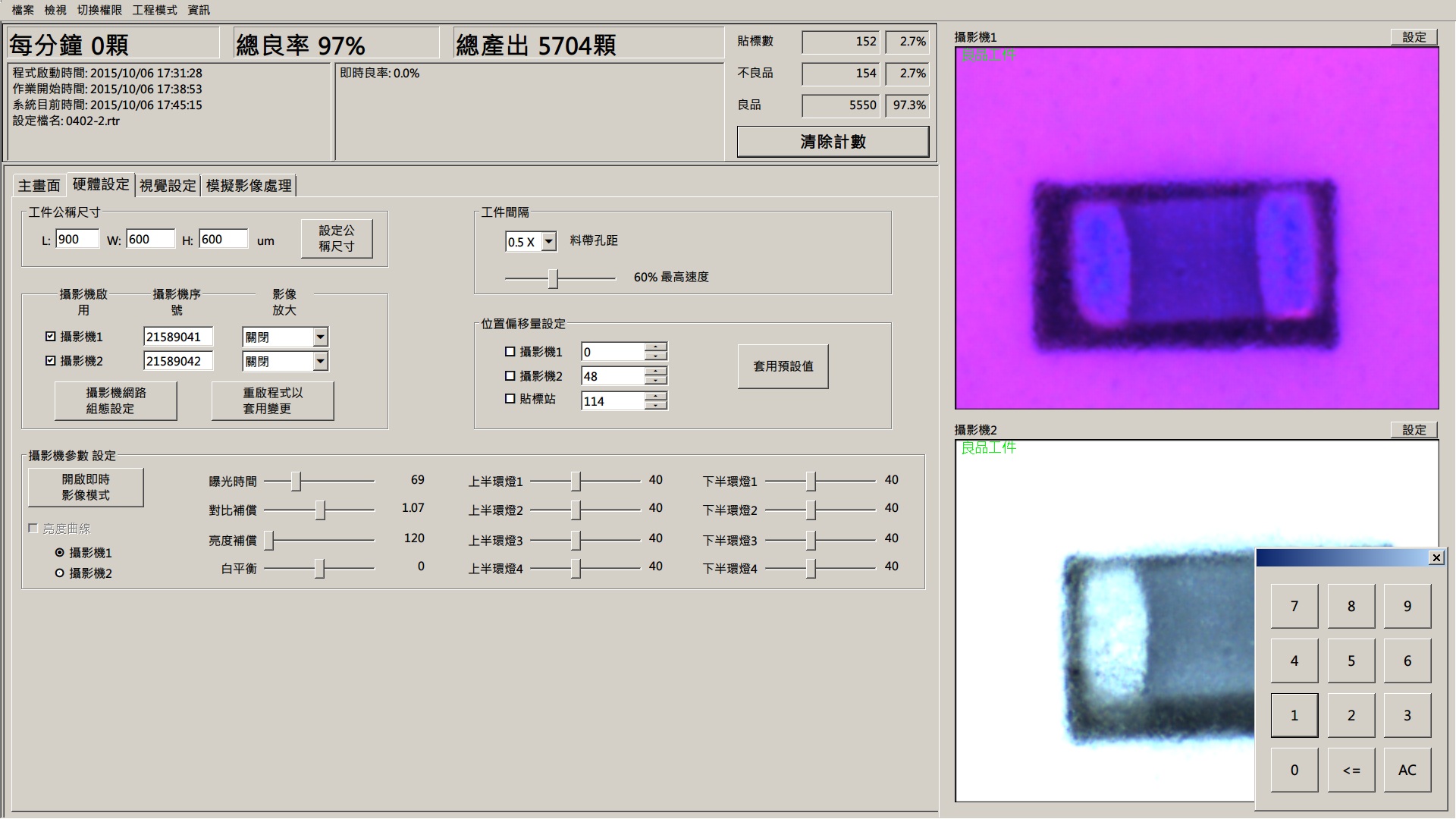
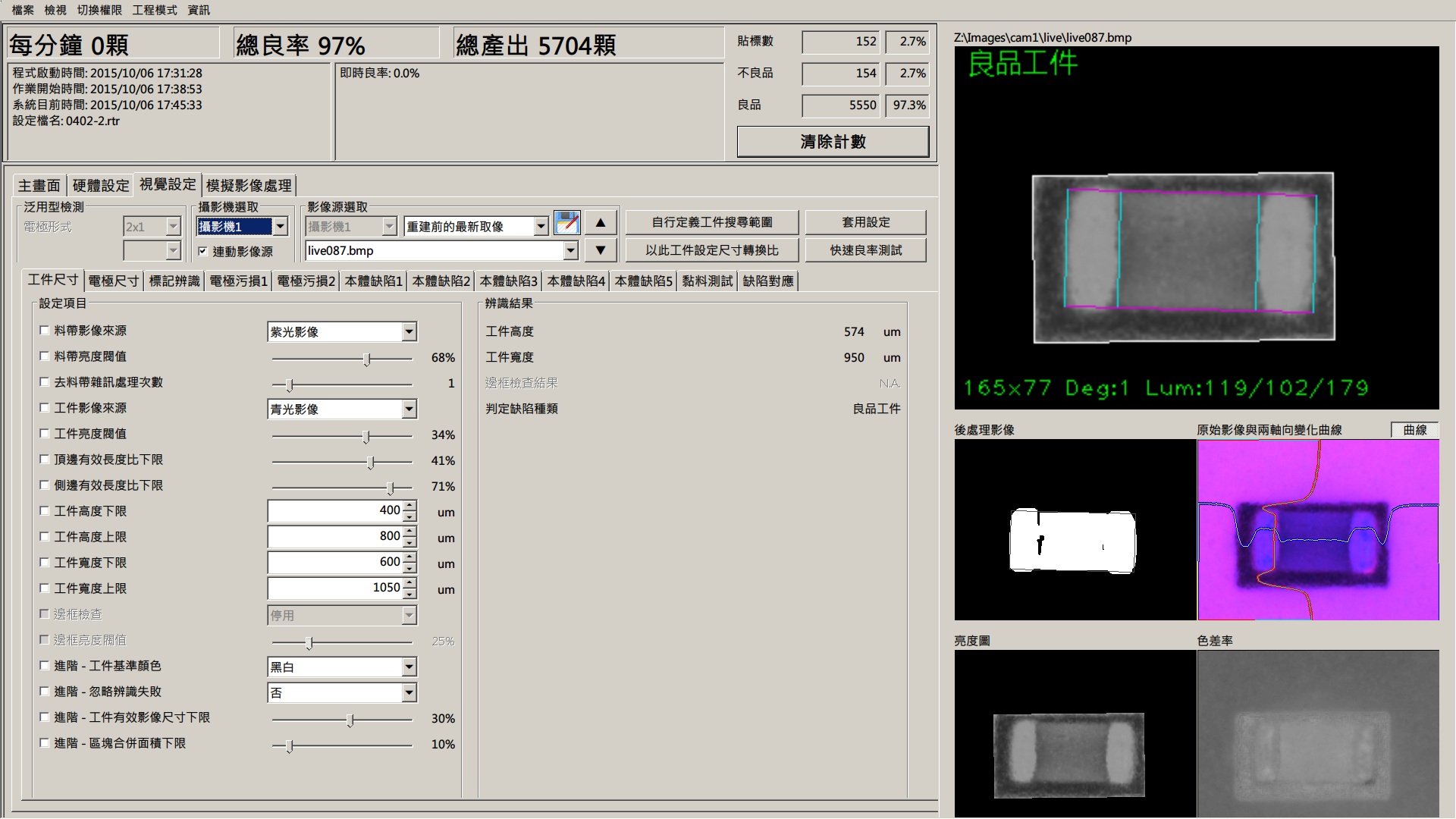
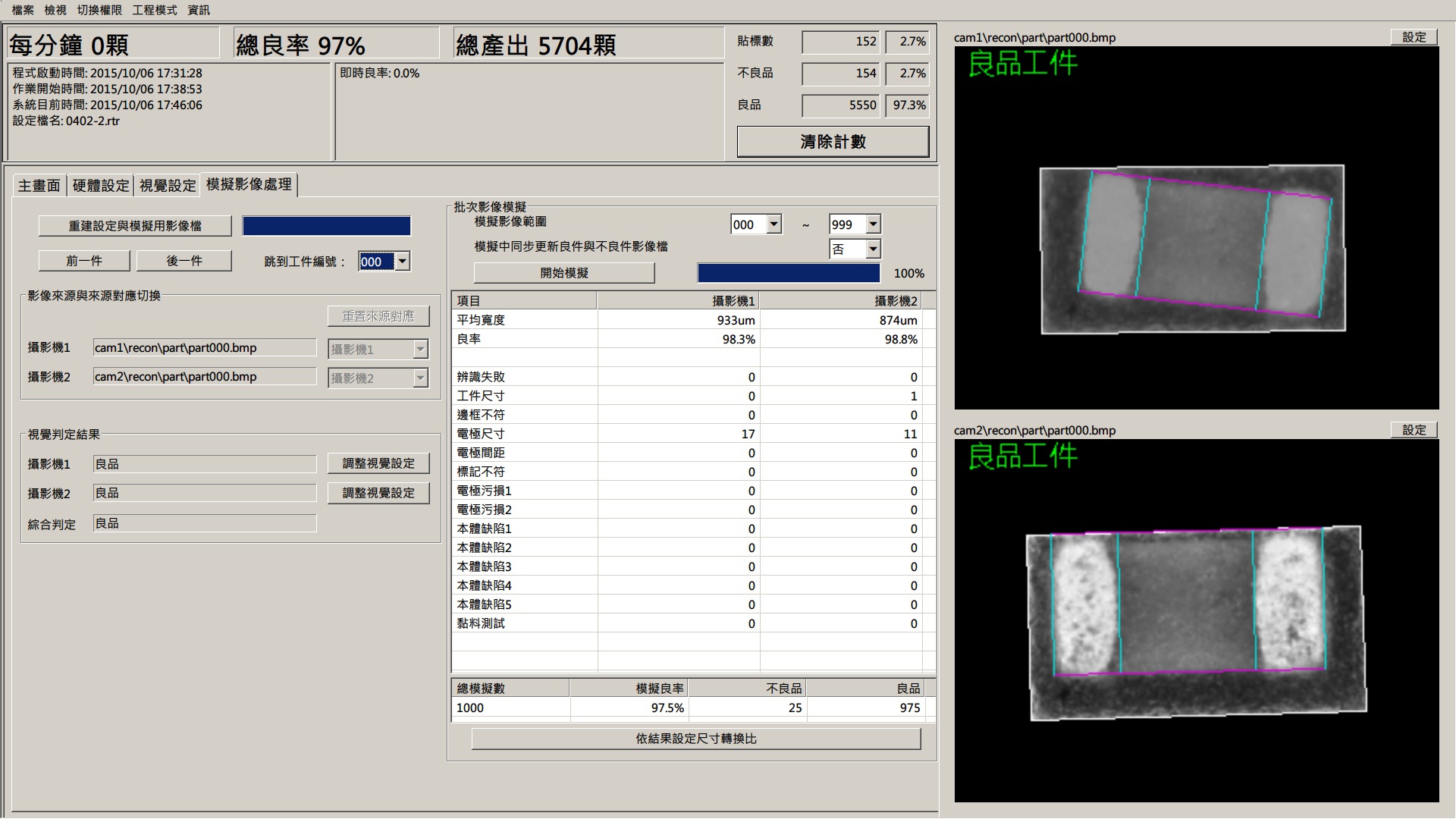
|
|
- The operating system is Windows 7 64-bit edition, bringing the machine full functions, friendly interface, and high reliability as a standlone machine.
- The industrial cameras guarantee high quality images. Data are transfered through the standard ethernet and no capture card is required. The maintenance cost can be significantly reduced.
- The zoom lenses increase the flexibility and make the production changeover faster and easier. The standard FOV is 0.6mm ~ 8mm. Different lenses can be used upon request.
- The unique lighting design significantly reduces the misjudgement caused by the tape reflection.
- The full automatic sticking mode reduces the human power and increases the throughput.
- The semi automatic sticking mode allows human interference, giving the process more flexibility.
- The 2-step speed design makes operators easy to insert tapes at beginning.
- The unique cavity detection mechanism along with the pin-less rollers brings high speed and no harm to tape holes.
- The realtime display mode with the brightness variation curves assists personnels to balance the lighting.
- 1000 images for each camera are stored for the vision setup and the simulation, making the setting a breeze.
- Both the software and hardware are in-house designed and can be modified according to the requirements.
- For 2mm-pitch tapes, the production speed of 6000 pcs/min is sustained.
- For 4mm-pitch and 8mm-pitch tapes, the production speed of 3000 pcs/min is sustained.
|
|
- MLCC / MLCI
- White MLCI with no marking, 1/4 marking, or 1/8 marking
- MLCC Arrary / MLCI Array
- Chip Resistor
- Resistor Array
- Wire-wound Inductor
- NR Inductor
- Diode
- LED Chip
- QFN Chip
|
|
- Process Issues: Empty cavity and component flipping.
- Dimensions: Measure DUT dimensions, electrode dimensions, and electrode ratios.
- Distance:Measure distances between electrodes or certain edges.
- Electrode Dirt: Find out the defects on the electrodes.
- Ceramic Soldering: Find out the undesired solders on the ceramic.
- Ceramic Dirt: Find out the dirts on the ceramic.
- Ceramic Crack: Find out the cracks on the ceramic.
- Bad Marking: Verify the marks on resistors, diodes, and QFNs.
- Bad Gluing: For NR inductors, check whether it is over-glued or under-glued.
- Bent Electrode: For diodes and LEDs, reject those DUTs with bent electrodes.
- Bad Wiring: For wire-wround inductors, check the wire position, the dirts on wires, and the void soldering.
- Chrominance: For LEDs, verify the color and the saturation.
Users can adjust the brightness thresholds, the variation thresholds, and the detection regions to have desired results,
and sort the DUTs by giving the proper upper and lower bounds of the dimensions and defect sizes.
|
|
- Introduction video 1: RTR_Demo1.mp4
The inspected components are 1/8 marking inductors within a 2mm-pitch paper tape. Production speed is 6000 pcs/min.
- Introduction video 2: RTR_Demo2.mp4
The inspected components are ceramic wire-wound inductors within a 4mm-pitch plastic tape. Production speed is 3000 pcs/min.
|
|
| Click here to watch or download |
|
|






